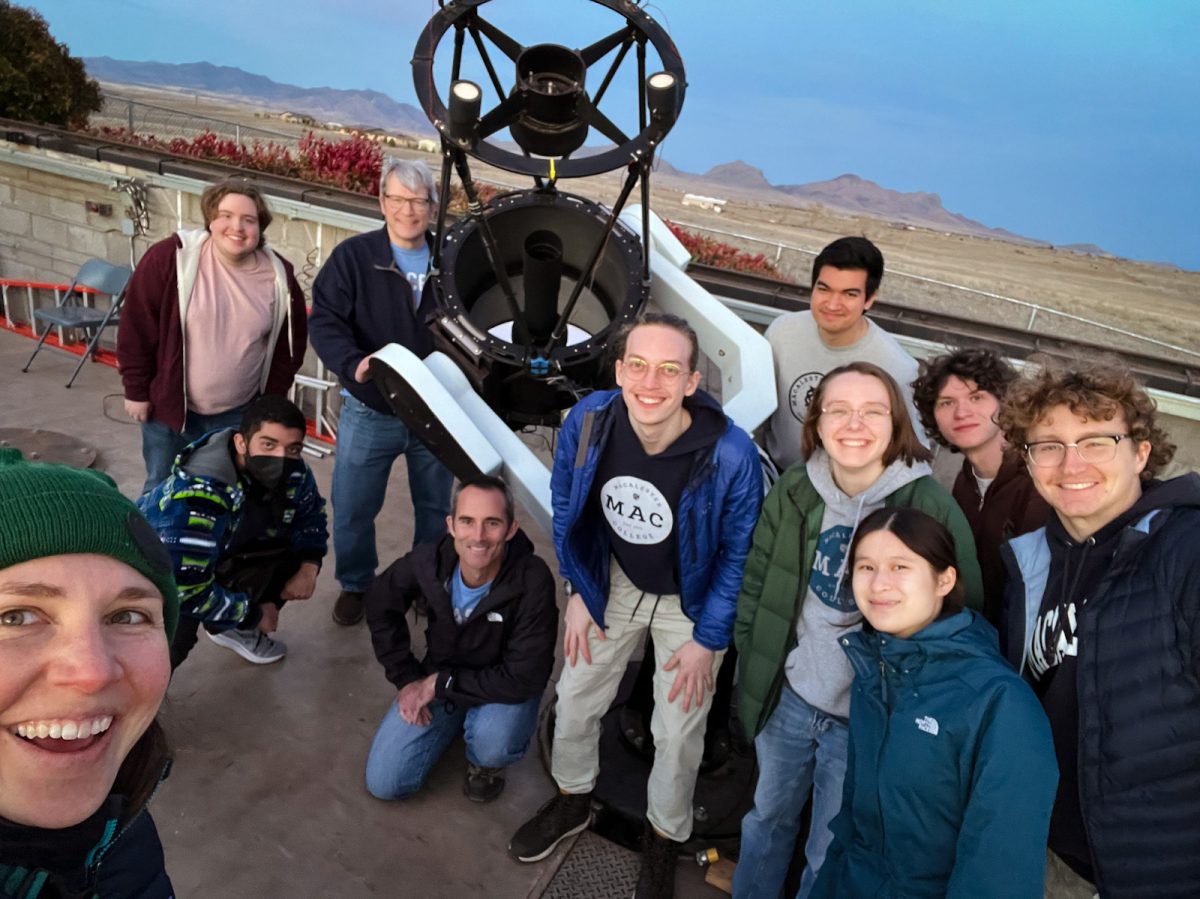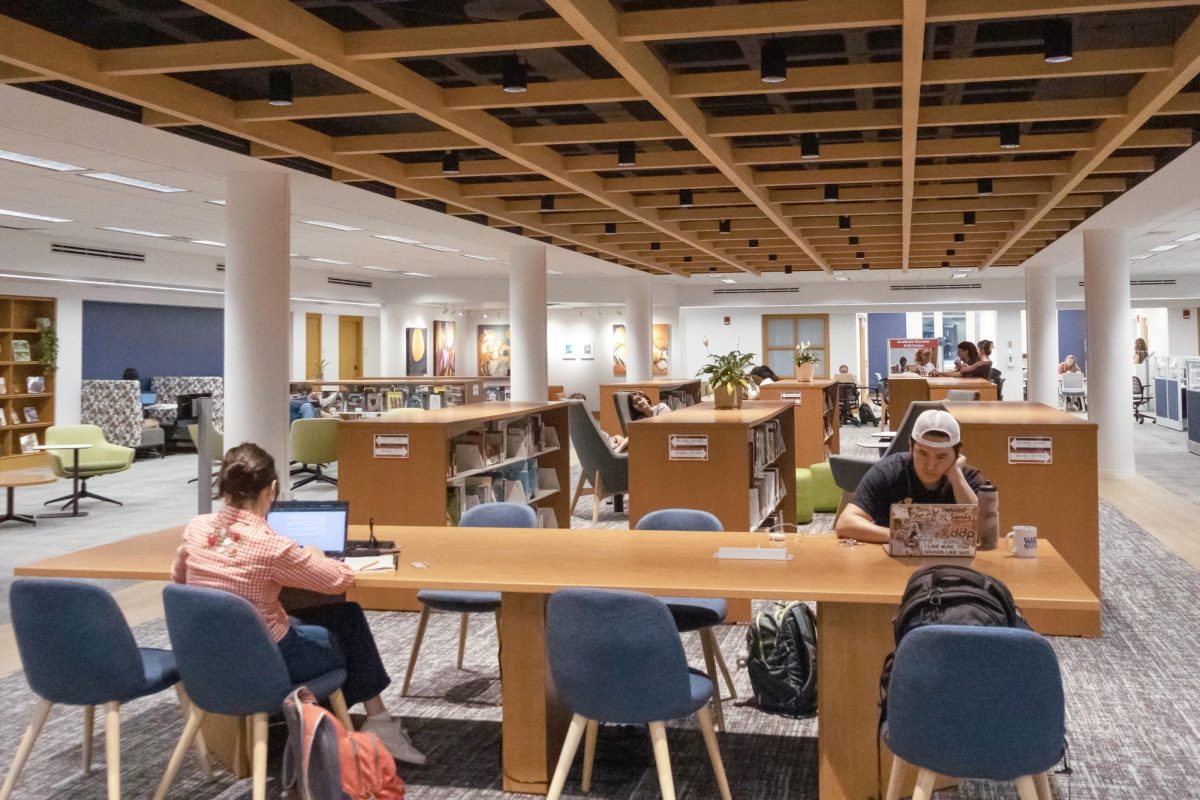As spring break kicked off this March, the usual array of plans emerged at Macalester. Some students headed home, others embarked on personal travel and a few opted to stay put on campus.
However, for a handful of students, a unique opportunity presented itself: to integrate their coursework with travel. For students enrolled in the physics course Observational Astronomy, spring break took them to Sedona, Ariz. to put their learning into action. Physics and astronomy professor Anna Williams, who co-led this excursion, explained that the main goal of the trip was to give students experience with the science-grade Robert L. Mutel telescope, which has data that they often work with in their studies.
“We spent most of our days at the telescope, where students practiced setting up observations, taking observations and collecting data,” Williams said. “They got to see it in action and learned how to control it. Once it was dark out, students could pick a part of the sky that they wanted to look at.”
In addition to working with the telescope, the group visited the University of Arizona’s Mirror Lab, which exhibits materials central to the next generation of telescopes. They also went to an observatory, enjoyed a hike and spent time working on their individual projects for the course, which are a culmination of extensive learning on the topic.
“I feel very fortunate to be at a place where this is possible,” Williams said, reflecting on the experience and her own appreciation for interactive telescope work as an undergrad. “This is a major step in teaching students how to be astronomers.”
American studies and French course Blacks in Paris also utilized travel during spring break to explore their academic material hands-on. Led by American studies professor Duchess Harris and French professor Juliette Rogers, this trip to France provided students with an immersive experience to enhance their understanding of the relationship between the Black community and France.
“Seeing the readings come to life — especially seeing Black life in these really grand, beautiful places — was incredible,” Bella Rodman ’25 said. “We got to see the living history and the sense of resilience and beauty that comes with Black artistry. This sense of culture was there everywhere we went.”
While much of their trip involved guided tours and visits to landmarks in Paris and Bordeaux, every aspect of the trip was a learning experience. Several students reflected on their appreciation for such an immersive experience.
“A whole extra element of the experience was the food,” Amelia Frey ’24 said. “After our walking tour of Little Africa, we went to an African restaurant and had fusion food from the diaspora around the world. This was just another example of how the core concepts in our class related to absolutely every single aspect of our trip.”
Elizabeth Ekstrand ’25 appreciated the chance to engage with knowledgeable guides and local people who deepened her understanding of the class content, highlighting intimate visits to galleries in the Louvre and valuable conversations with class and community members.
“A really cool part of the trip for me was all of the amazing people that we got to meet, all thanks to the amazing organizing efforts of our professors,” she said. “For example, we got to meet Jake Lamar, who [is] the author of ‘Rendezvous Eighteenth,’ which is a novel that we had all read. We got to talk about his experiences living in France, and how they differ from his upbringing in Brooklyn.”
Karla Garcia ’25 reflected on the relevance of the trip not just to this course but also to other American studies courses.
“Before this class, and as someone who had never been to Europe before, I honestly did not know a lot about France in general,” Garcia said. “Learning about these concepts both in the classroom here and abroad in France was very eye-opening.”
While Macalester offered this course and trip in the past, it traditionally took place at the end of the semester. Jessica Williams ’26 expressed appreciation for this change.
“I feel like there really is a merit to doing it in the middle of the semester,” Williams said. “Instead of just reading, now our coursework is something tangible. Actually being able to relate the readings to your own experiences means a lot.”
Whether students were exploring science in Arizona or delving into Black history in Paris, their experiences are a reminder of the power of experiential learning. Now, students are back on campus with a fresh perspective and a deeper understanding of their studies and the world.











